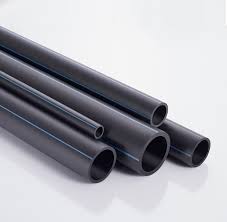Oct . 11, 2024 04:51 Back to list
irrigation hdpe pipe product
Exploring the Benefits of HDPE Pipe in Irrigation Systems
Irrigation is a critical component of agriculture, allowing farmers to efficiently manage water resources, boost crop yields, and mitigate the effects of climate variability. Among the various technologies used in irrigation, High-Density Polyethylene (HDPE) pipes have gained significant popularity due to their numerous advantages. This article delves into the benefits of using HDPE pipes for irrigation, highlighting their durability, efficiency, and overall positive impact on agricultural practices.
Durability and Longevity
One of the primary advantages of HDPE pipes is their exceptional durability. Made from high-density polyethylene, these pipes exhibit excellent resistance to various chemicals, corrosive soil conditions, and temperature fluctuations. Unlike traditional materials such as metal and concrete, HDPE does not rust or corrode over time, giving it a significantly longer lifespan. With a potential lifespan of over 50 years, HDPE pipes reduce the need for frequent replacements, making them an economically viable choice for long-term irrigation solutions.
Lightweight and Easy to Install
Another notable feature of HDPE pipes is their lightweight nature. Compared to conventional pipes, HDPE pipes are considerably lighter, making transportation and installation processes much simpler and less labor-intensive. This characteristic not only reduces the installation time but also minimizes costs associated with machinery and manpower. Farmers can quickly adapt their irrigation systems using HDPE pipes, leading to more efficient water management and better agricultural productivity.
Flexibility and Adaptability
HDPE pipes are renowned for their flexibility, allowing them to bend and curve around obstacles without the need for additional fittings or joints. This adaptability makes HDPE an ideal choice for varied terrains, ensuring that irrigation systems can be customized to meet specific landscape requirements. Furthermore, the flexibility of HDPE pipes helps minimize the risk of breakage during installation and operation, which is a common issue with more rigid piping materials.
irrigation hdpe pipe product

Efficient Water Delivery
In terms of water delivery, HDPE pipes offer a significant advantage. Their smooth interior surfaces reduce friction losses, allowing water to flow more freely and efficiently through the system. This efficiency minimizes energy costs associated with pumping water, thus lowering the overall operational expenses of an irrigation system. With effective water delivery, farmers can provide their crops with the precise amount of moisture required for optimal growth, ultimately enhancing crop yield and quality.
Environmental Impact
The use of HDPE pipes also aligns with sustainable agricultural practices. The material is fully recyclable, and its production process consumes less energy compared to traditional piping materials. Moreover, the longevity of HDPE pipes means fewer resources are needed for replacements, contributing to a reduction in overall environmental impact. By adopting HDPE pipes, farmers can support eco-friendly practices while also ensuring that their irrigation systems are efficient and effective.
Cost-Effectiveness
When considering the total cost of ownership, HDPE pipes prove to be an economical option for irrigation systems. Although the initial investment might be slightly higher than other materials, the long-term savings on maintenance, replacement, and operation costs make HDPE an attractive choice. Reduced downtime, combined with efficient water distribution and longevity, create a favorable economic scenario for farmers looking to maximize their returns on investment.
Conclusion
High-Density Polyethylene (HDPE) pipes stand out as a superior choice for irrigation systems, offering a range of benefits that enhance agricultural efficiency and sustainability. Their durability, lightweight nature, flexibility, efficient water delivery, positive environmental impact, and cost-effectiveness make them a go-to option for farmers aiming to improve their irrigation practices. As global challenges related to water scarcity and sustainable farming continue to grow, the adoption of HDPE pipes in irrigation systems will likely play a crucial role in shaping the future of agriculture. By integrating innovative technologies like HDPE pipes, farmers can secure their agricultural practices, ensuring a bountiful harvest for years to come.
-
32mm HDPE Pipes Coil: Durable & Flexible Water Supply
NewsAug.05,2025
-
DN100 PVC Well Casing Pipes | Durable Corrosion-Proof
NewsAug.04,2025
-
HORON 25mm PPR Plumbing Pipes - AI-Enhanced & Reliable
NewsAug.03,2025
-
HORON 25mm PPR Pipes - AI-Optimized Plumbing Excellence
NewsAug.02,2025
-
Premier HDPE Sprinkler Pipe Manufacturers | Durable Solutions
NewsAug.01,2025
-
DN500 HDPE Double Wall Corrugated Drain Pipes | Durable & Efficient
NewsJul.31,2025

